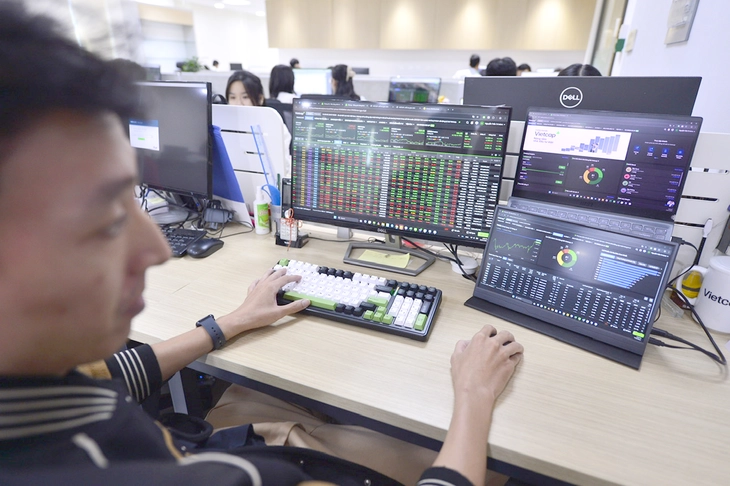
The average stock trading value in the first 9 months of the year of the Vietnamese stock market reached about 1.16 billion USD/session, among the markets with the highest liquidity in the region - Photo: QUANG DINH
According to the Stock Market Development Strategy to 2030, the stock market capitalization scale needs to reach 100% of GDP by the end of 2025.
With the stock market capitalization only reaching about 70-80% of GDP up to now, can the market "reach the finish line" on schedule? What should market managers do to promote the development of the capitalization scale of the Vietnamese stock market?
Large enterprises should be encouraged to go public.
Speaking with Tuoi Tre, Mr. Do Bao Ngoc, Deputy General Director of Kien Thiet Securities Company, said that setting a target for stock market capitalization is extremely necessary, because this is a measure reflecting the level of development of the financial market.
The higher the market share of GDP and the larger the capitalization scale, the deeper the development of the national financial system. To achieve a capitalization scale equivalent to 100% of GDP, according to Mr. Ngoc, many synchronous solutions need to be implemented, in which the policy of encouraging listing holds an important position.
In fact, according to Mr. Ngoc, there are still many large enterprises, especially state-owned enterprises and leading private corporations, that have not been listed. These are "good goods" that, if listed, will help expand their capitalization quickly.
According to Mr. Ngoc, the role of management agencies in motivating businesses to go public is an important factor, but internal growth of businesses is the big driving force for the market.
Meanwhile, Mr. Huynh Anh Huy, Director of Industry Analysis at Kafi Securities, said that the target of market capitalization reaching 100% of GDP is just a matter of time. However, before achieving that target, the stock market still has to go through many steps in innovation and promoting scale.
During that process, Vietnam has achieved a number of important milestones, most recently meeting FTSE's market upgrade criteria, opening up opportunities to attract cash flow as well as improve market valuation levels.
According to Mr. Huy, in the roadmap for stock market development, the merger of the three trading floors HOSE, HNX and UPCOM is also underway, which will help businesses achieve uniformity in reporting standards, transparency, as well as create conditions for new investors to easily participate in the market.
In addition, the management agency is also promoting the implementation of a mechanism to help foreign brokers participate in placing orders directly on the Vietnamese stock market. This is a necessary step and needs to be promoted soon to attract capital flows into the Vietnamese market before the official upgrade.
Need to improve the quality of goods, limit "junk" stocks
Despite the great prospects, Mr. Ngoc admitted that the market still faces many barriers. The equitization process of state-owned enterprises is still slow. The investor structure is unbalanced, as most transactions come from individual investors. This will make the market susceptible to "swinging" sessions due to short-term, speculative psychology.
Besides, the quality of goods on the floor has many issues to discuss, when there are still many "junk" stocks. Meanwhile, putting weak businesses on the floor not only does not create value but also reduces the confidence of investors. Therefore, quality must be put first, along with a stricter monitoring mechanism.
"To develop sustainably, it is necessary to simultaneously improve the quality of listed companies and increase the proportion of institutional investors. The market will only truly attract long-term capital flows when listed stocks meet transparency standards, have healthy finances and operate effectively," said Mr. Ngoc.
In addition, according to financial expert Tran Trong Duc, General Director of Virtus Prosperity, the free float ratio (shares freely circulating on the market) of many large enterprises is still low, not creating attraction for foreign investors. "When holding only a few percent of shares, international funds have almost no say in the enterprise. This reduces investment attraction," Mr. Duc analyzed.
To ensure liquidity and transparency in governance, Mr. Duc believes that the average free float ratio should be between 30 and 50%. Encouraging large listed companies to increase their free float ratio will also help increase their attractiveness to institutional investors, have a positive impact and help increase the capitalization scale of the entire market.
In addition, according to Mr. Duc, Vietnam is lacking international IPO deals. "Many 'big guys' are still not listed, while this is the group of businesses with potential to create a breakthrough for the market," Mr. Duc said, adding that the sale of shares to foreign partners or international funds is the key factor in helping to revalue the entire market.
Meanwhile, Mr. Huy said that what investors, especially large foreign organizations, are interested in is the amount of "goods" on the market. There are many corporations, state-owned enterprises and large enterprises that have not yet gone public and listed. "The wave of IPOs from large securities companies such as TCBS, TPBS or VPS is the first "shot" to reactivate the listing trend of Vietnamese enterprises, contributing to strongly promoting the market scale," Mr. Huy said.
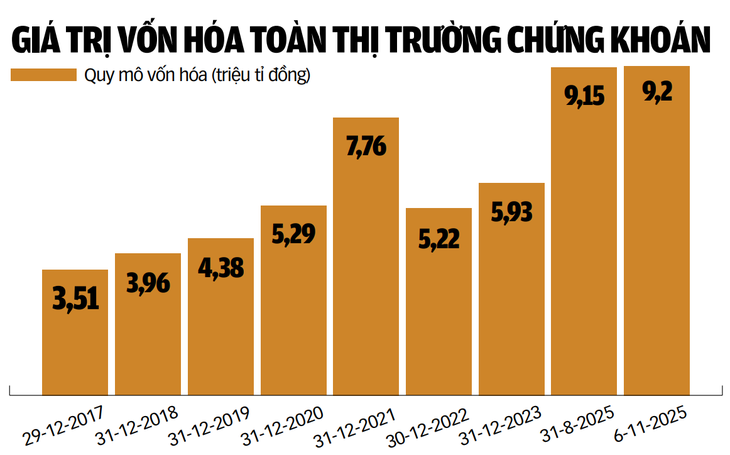
Data: SSC - Graphics: TUAN ANH
Encourage investment through funds
At an event recently held in Hanoi , Mr. Bui Hoang Hai - Vice Chairman of the Securities Commission - emphasized that the decision to upgrade FTSE Russell is the beginning of a new journey, the beginning of stronger, more standardized and more disciplined policies and reforms. Accordingly, the focus will be on perfecting institutions and laws and improving the business environment towards transparency, convenience and equality for all entities...
Continue to remove obstacles to increase market openness, in line with international practices such as: implementing the central counterparty (CCP) mechanism for the underlying securities market (stocks, fund certificates, covered warrants) in early 2027; information transparency and expanding the maximum foreign ownership ratio in all fields, researching and implementing the total transaction account (OTA) mechanism...
In addition, Mr. Hai affirmed that he will diversify the commodity base in the market, develop modern financial products and services to expand investment space and manage risks more effectively: promote public offering of shares associated with listing and registration for trading on the stock market; attract large-scale enterprises with good financial situation and corporate governance to list...
Research and develop new products such as bonds for infrastructure development to serve the development of the country's infrastructure; develop diverse bond products such as green bonds, sustainable bonds, products for the derivatives market such as options contracts, new futures contracts... to attract capital from foreign markets to quality domestic enterprises...
Develop institutional investors through the development and diversification of securities investment funds. Encourage individual investors to participate in the market through professional investment institutions (securities investment funds) to minimize risks and improve investment efficiency.
Vietnam's stock liquidity is among the highest in the region.
According to the State Securities Commission, as of September 30, the stock market capitalization reached VND9.4 trillion (equivalent to 81.8% of estimated GDP in 2024); the average trading value in the first 9 months reached nearly VND29,100 billion/session (about USD1.16 billion/session).
The Vietnamese stock market is among the markets with the highest liquidity in ASEAN, almost equal to the liquidity of the Thai market (about 1.3 billion USD/session), Singapore (about 1.4 billion USD/session) and higher than the Philippine market (116.3 million USD/session), Malaysia (about 564 million USD/session), Indonesia (924.7 million USD/session)...
However, according to experts, the imbalance between individual and institutional investors is a limitation that needs to be overcome. In reality, most individual investors in Vietnam still lack investment knowledge and do not have confidence in funds. To improve this problem, experts propose allowing the expansion of fund management companies instead of restricting them, and at the same time developing new financial products...
Source: https://tuoitre.vn/chung-khoan-kho-ve-dich-100-gdp-20251106231411387.htm








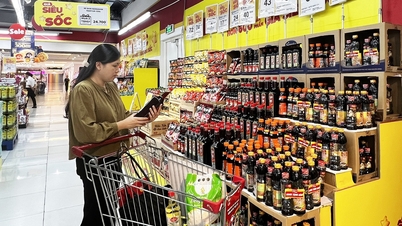



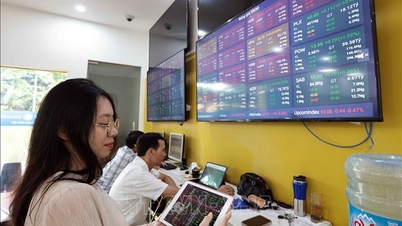



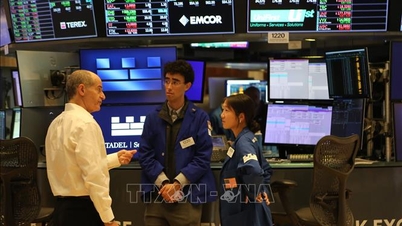
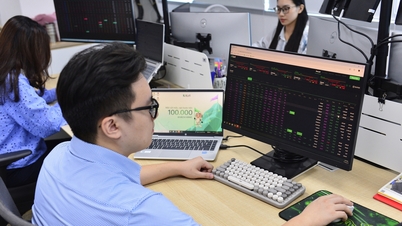







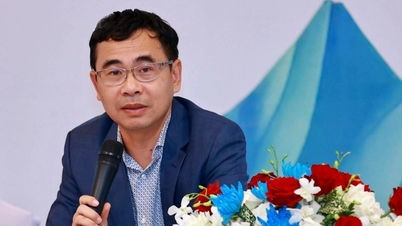













![[Photo] Da Nang: Hundreds of people join hands to clean up a vital tourist route after storm No. 13](https://vphoto.vietnam.vn/thumb/1200x675/vietnam/resource/IMAGE/2025/11/07/1762491638903_image-3-1353-jpg.webp)



































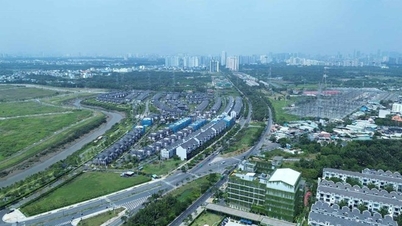




































Comment (0)